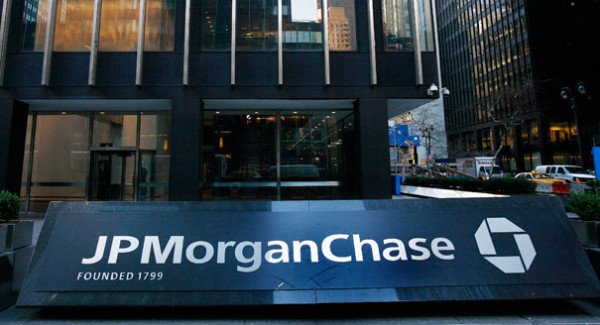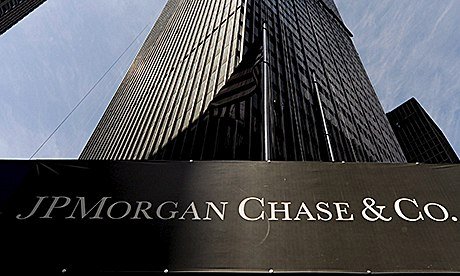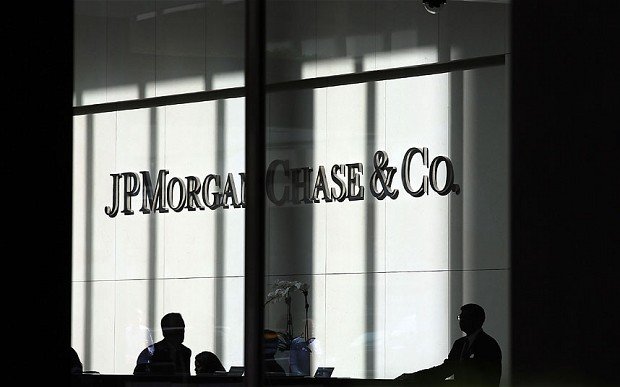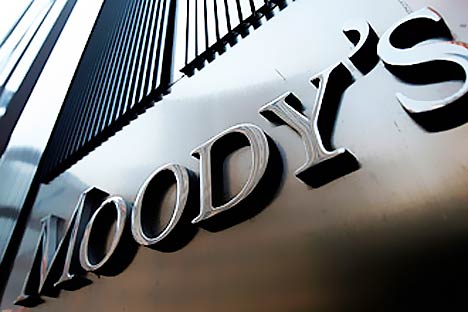Home Tags Posts tagged with "jp morgan chase"
jp morgan chase
JP Morgan Chase reported higher profits in Q3 of 2015 but still missed analysts’ expectations.
The banking giant posted a net income of $6.8 billion, up from $5.5 billion during the same period last year.
The largest US bank by assets said that net revenue was $23.5 billion, down from $25 billion compared with the year before.
JP Morgan also reported $1.3 billion in legal costs for the period.

Photo Reuters
Banks have been under pressure to cut costs and hold more capital in reserve in case of future financial shocks.
JP Morgan also said that it received tax benefits of $2.2 billion in the period.
The bank also reported that sales of its loan products had increased by 15% year-on-year, and that the balance of those loans had gone up 13%.
JP Morgan CEO Jamie Dimon said in a statement: “We had decent results this quarter.
“We saw the impact of a challenging global environment… We continue to focus on our commitments, optimize our balance sheet and manage our expenses.”
In a conference call, JP Morgan pointed to the higher cost of regulation as a factor that would “tap down profit for a while”.
JP Morgan Chase has reported a $5.6 billion profit for Q3 2014.
The quarterly results represent a marked improvement on a year earlier, when the bank made a $380 million loss.
This was the result of setting aside billions of dollars to settle charges relating to the sale of mortgage-related investment products.
Separately, rival Citigroup posted profits of $3.44 billion and said it would exit consumer banking in 11 markets.
JP Morgan and Citigroup are the first major US banks to report third-quarter results.
Other big US banks will post their results later this week.
The JP Morgan results were due to be published at 08:30 local time, but were posted early.

JP Morgan Chase has reported a $5.6 billion profit for Q3 2014
They showed total revenue for the quarter of $25.2 billion, up 5% on a year earlier. Revenue at the investment banking business fell by $600 million, with profits down by 34%.
Revenue at the asset management arm grew by $250 million to $3 billion, with profits up 20%.
“Our businesses continue to perform well,” said chief executive Jamie Dimon.
“While challenges remain in the global economic recovery, the US economy is an exception, showing signs of steady improvement.
“Corporate America is in good shape, with strong balance sheets, and employment trends continue to be positive.”
Citigroup saw its profits rise 7% to $3.44bn on revenues of $19.6 billion.
The bank also said it would accelerate plans to focus on markets “where it has the greatest scale and growth potential”.
As a result, it said it would be exiting consumer banking in 11 markets – Costa Rica, Czech Republic, Egypt, El Salvador, Guam, Guatemala, Hungary, Japan, Nicaragua, Panama and Peru, as well as its consumer finance business in South Korea.
“Our consumer bank and institutional business each had solid performance during the quarter and generated stronger revenues both sequentially and year-on-year,” said the bank’s chief executive Michael Corbat.
“I am committed to simplifying our company and allocating our finite resources to where we can generate the best returns for our shareholders.”
Meanwhile, smaller rival Wells Fargo reported a $5.7 billion profit for the third quarter, up 1.7% on the same period last year.
Revenues rose 3.4% to $21.2 billion.
JP Morgan Chase has agreed to pay four regulators $920 million relating to a $6.2 billion loss incurred as a result of the “London Whale” trades.
Under the settlement, $200 million will go to the US Securities and Exchange Commission (SEC) and $215 million to the UK’s Financial Conduct Authority (FCA).
As part of the deal JP Morgan admitted violating US federal securities laws.
Traders at JP Morgan’s London office built up huge losses in derivatives trades at the beginning of last year.
Two former JP Morgan traders face criminal charges in the US relating to the case.
They deny charges of lying about the size of their trades in order to hide their mounting losses.
In a statement, the SEC said there had been failings in JP Morgan’s internal controls and in senior management.
The regulator said the bank – whose chief executive Jamie Dimon once described the trading problems as a “tempest in a teacup” – had admitted the facts underlying the SEC’s charges.

JP Morgan Chase has agreed to pay four regulators $920 million relating to a $6.2 billion loss incurred as a result of the “London Whale” trades
“JP Morgan failed to keep watch over its traders as they overvalued a very complex portfolio to hide massive losses,” said George Canellos, co-director of the SEC’s division of enforcement.
The Wall Street firm, one of the biggest investment banks in the world, is paying $300 million to the US Office of the Comptroller of the Currency (OCC), and $200 million will go to both the Securities and Exchange Commission (SEC) and the US Federal Reserve.
A further $215 million will be paid to the UK’s Financial Conduct Authority as part of the global settlement.
It said JP Morgan’s conduct “demonstrated flaws permeating all levels of the firm: from portfolio level right up to senior management”.
Tracey McDermott, the FCA’s director of enforcement and financial crime, said the failings had undermined trust and confidence in the UK’s financial markets.
“This is yet another example of a firm failing to get a proper grip on the risks its business poses to the market,” she said.
“Senior management failed to respond properly to warning signals that there were problems.
“As things began to go wrong, the firm didn’t wake up quickly enough to the size and the scale of the problems. What is worse, they compounded this by failing to be open and co-operative with us as their regulator.”
The London Whale was the name given to then-JP Morgan derivatives trader Bruno Iksil, who is believed to have racked up the losses and is now co-operating with authorities in criminal cases against other traders.
The bank’s chief investment officer, Ina Drew, stepped down following the revelation of the losses in 2012.
Jamie Dimon, whose “tempest in a teacup” comment in April 2012 prompted criticism he was underplaying the affair, said in a statement on Thursday the bank “accepted responsibility and acknowledged our mistakes from the start”.
“We have learned from [our mistakes] and worked to fix them. We will continue to strive towards being considered the best bank – across all measures – not only by our shareholders and customers, but also by our regulators,” he said.
“Since these losses occurred, we have made numerous changes that have made us a stronger, smarter, better company.”
[youtube pn715XXnqzY]
Bank of America is being sued for $1 billion for an alleged mortgage fraud.
The civil lawsuit has been brought by the US Attorney Preet Bharara, the top federal prosecutor in Manhattan, New York.
Preet Bharara accuses Countrywide Financial, which Bank of America bought in 2008, of selling thousands of toxic home loans to Fannie Mae and Freddie Mac.
Fannie Mae and Freddie Mac are government agencies that support the US mortgage market.
Bank of America has yet to comment.
Countrywide is accused of running a trading scheme from 2007 to 2009 that was deliberately designed to process loans at high speed without checks on their quality.
The legal action against Bank of America follows similar moves by the US government earlier this month against Wells Fargo and JP Morgan Chase.
On October 2nd, JP Morgan was sued for allegedly defrauding investors who lost more than $20 billion on mortgage-backed securities sold by Bear Stearns.
JP Morgan, which bought the investment bank in March 2008, said the allegations related to actions at Bear Stearns prior to its takeover.
Meanwhile, on 10 October, Wells Fargo was also sued by federal authorities for alleged mortgage fraud.
The US government alleges that Wells Fargo lied about the quality of mortgages it handled, leading to huge losses for the Federal Housing Administration.
Wells Fargo has denied the allegations.
The New York Attorney General has sued JP Morgan Chase for allegedly defrauding investors who lost more than $20 billion on mortgage-backed securities sold by Bear Stearns.
JP Morgan bought the investment bank Bear Stearns in March 2008.
It said that it would contest the allegations.
This is the first action to come out of a working group created by US President Barack Obama looking into the causes of the 2008 financial crash.
JP Morgan said: “The NYAG civil action relates to Bear Stearns, which we acquired over the course of a weekend at the behest of the US government. This complaint is entirely about historic conduct by that entity.”
US mortgage-backed securities were the investment products that sparked the global financial crisis in 2008.
In essence, each security or bond was linked to pools of US mortgage loans, many of which were classified as sub-prime – mortgages awarded to high-risk and low-wage homeowers.
When many of those homebuyers defaulted on their mortgages as the US property bubble burst, it turned the linked securities into bad debt.
This caused billion-dollar losses at banks, who were forced to write down the value of their investments.
Banks around the world were affected, not just those in the US, because the securities were resold globally.
The securities had been widely purchased because rating agencies had mistakenly given them the highest possible credit rating.
As banks realized they were sitting on huge liabilities, they halted lending to each other, freezing up the global financial system in the process and making it harder for businesses and individuals to borrow funds.
The civil suit, filed by New York Attorney General Eric Schneiderman, accuses Bear Stearns of failing to ensure the quality of loans underlying residential mortgage-backed securities.
It relates to securities sold by Bear Stearns in 2006 and 2007 – before it was taken over by JP Morgan.
The legal action claims the bank “systematically failed to fully evaluate the loans, largely ignored the defects that their limited review did uncover, and kept investors in the dark about both the inadequacy of their review procedures and the defects in the underlying loans”.
It says that this led to the inclusion of mortgages on which borrowers were likely to default, and that investor losses in 2006 and 2007 totalled more than a quarter of the original £87bn value of the securities.
The NYAG wants the company to pay an undisclosed amount of damages for investor losses “caused, directly or indirectly, by the fraudulent and deceptive acts”.
Credit ratings agency Moody’s has decided to downgrade 15 global banks and financial institutions.
In the US, Bank of America and Citigroup were among those marked down.
The UK banks downgraded were Royal Bank of Scotland, Barclays and HSBC. Lloyds also had its rating cut by Moody’s in a separate announcement.
The other institutions that have been downgraded are Goldman Sachs, Morgan Stanley, JP Morgan Chase, Credit Suisse, UBS, BNP Paribas, Credit Agricole, Societe Generale, Deutsche Bank and Royal Bank of Canada.
Moody’s added that it was putting some of the banks on a negative outlook, which is a warning that they could be downgraded again in the future.
Explaining this, it said governments around the world had shown a “clear intent” to reduce their support for banks going forward.

Credit ratings agency Moody's has decided to downgrade 15 global banks and financial institutions
In Friday trading, shares in Royal Bank of Scotland (RBS) were up 0.8%, HSBC had gained 0.6%, and Barclays had risen 0.5%. Lloyds was 1.6% higher.
In France and Germany, Societe Generale was up 2.1%, while shares in Deutsche Bank were flat.
In a statement, RBS responded to its downgrade saying: “The group disagrees with Moody’s ratings change, which the group feels is backward-looking and does not give adequate credit for the substantial improvements the group has made to its balance sheet, funding and risk profile.”
RBS estimated that the downgrade could mean it would need to find an extra £9bn in collateral for its debts.
Lloyds said it believed that the change would have “limited impact on our funding costs and market capacity”.
In the US, Citigroup said it “strongly disagrees” with Moody’s decision.
Of the banks downgraded, four were cut by one notch on Moody’s ranking scale, including HSBC, Royal Bank of Scotland, and also Lloyds.
A further 10 banks had their rating reduced by two notches, including Barclays. Credit Suisse was lowered by three notches.
Moody’s separates the 15 banks into three groupings, relative to its assessment of their resilience to any global financial market turmoil.
It puts HSBC in its strongest “first group”, together with Royal Bank of Canada and JP Morgan.
Moody’s says these banks have “stronger buffers” than many of their peers, and “generally more stable businesses”.
Barclays is in its “second group” of banks which Moody’s says faces “sometimes adverse factors”. Other banks at this level are BNP Paribas and Goldman Sachs.
RBS is in the bottom “third group”, which comprises banks which “have been affected by problems in risk management, or have a history of high volatility”. Other banks in this grouping include Bank of America and Citigroup.




